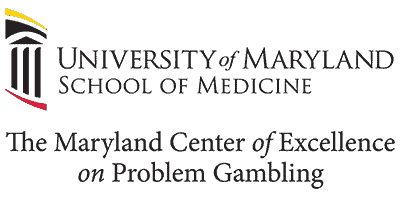Gambling Problems Can Affect Kids as Young as 8
Learn the facts and warning signs

Today, young people are surrounded by opportunities to gamble
According to the American Psychiatric Association, 10–15% of young people asked have significant gambling problems; 6% of the teens who have tried gambling have experienced gambling problems. Today, young people are surrounded by opportunities to gamble, often involved in sports pools, internet gambling, card games or dice. Often young people may not know that they have a gambling problem. Special materials developed for young people can be helpful for teachers, counselors and parents. The Maryland Center of Excellence on Problem Gambling can make recommendations for resources as well as counseling.
When does teen gambling begin?
In most Western societies, gambling is perceived as a harmless or low-risk social activity for participants of all ages. It is not unusual to see parents offering lottery tickets, especially scratch cards, to their children, even if this activity is meant for adults only. We know from research that many problem gamblers were introduced to gambling activities by family members as early as 10 years of age.

Why do adolescents play?
Contrary to popular belief, research and clinical work show that money is not the only reason why adolescents gamble. Teens play for fun, excitement, and to make money. Many of those who experience gambling problems say that they play to escape and to forget about their problems.
GET THE FACTS
For the majority of adults, gambling can be a fun and entertaining experience, but there are risks involved. It is critical to know these risks and have a plan before you begin betting on sports.
- Gambling problems are often hidden, and many people may not be aware of them.
- Problem gambling can compromise, disrupt or cause damage to one’s life.
- Problem gambling has the highest rate of suicide of any addictive disorder, with 1 in 5 attempting suicide.
People with gambling problems are at high risk for incarceration and suicide. It is very important to get help as soon as possible.
Have the conversation
As a parent, you can…
- Inform yourself about the risks associated with gambling activities.
- Limit your own gambling participation, as you are an important role model for your child.
- Explain why the risk of gambling is greater for teens than for adults.
- Explain to your child the difference between responsible gambling and excessive and risky gambling.
- Clearly state your position on gambling participation by teenagers.
- Discuss rules and expectations and follow through with consequences.
- Do not offer any lottery products to your children or teenagers as gifts or rewards.
- Notice any unusual changes in your child’s behavior.
- Be aware of their Internet use.
Signs of teen problem gambling
In adolescents, manifestation of gambling problems is not always as clear as those commonly observed in adult problem gamblers. However, some signs can indicate the development of a growing problem:
- a consuming interest in gambling and gambling-related activities.
- problems in school, such as a loss of interest or unexplained absences.
- truancy from school.
- changes in personality, demeanor, mood.
- frequent and unexplained need for money.
- money and valuables from your home turn-up missing.
- large amounts of money in is or her possession.
- boasting about winnings.
- unexplained new items in your child’s possession (jewelry, clothes, etc.)
- weekly or daily card games in your child’s room.
- calls to sports phone lines on telephone bill.
- unaccountable time away from home.
- explosive expression of anger.
- signs of anxiety and stress.
- changes in relationships (new friends/acquaintances, ignoring old friends).
- borrowing or taking money.
Share This Page:
If you are concerned about a teen, call the Center’s 24/7 Confidential helpline
Gamblers, their family, their friends, or employers are welcome to call or text the free and confidential helpline.
Call or Text the Maryland Problem Gambling Helpline 24/7
As a Maryland resident, you can be connected to a treatment provider for “no Cost” counseling or to to a Peer Recovery Support Specialist who has live experience in recovery and has been there.
MORE OPTIONS:
Self Assessment

If you, or someone you know, struggles with problems due to gambling behavior we can help! Call or text:
(1-800-426-2537)
Maryland Problem Gambling Helpline… It’s free, confidential and 24/7
©2023 THE MARYLAND CENTER OF EXCELLENCE ON PROBLEM GAMBLING

